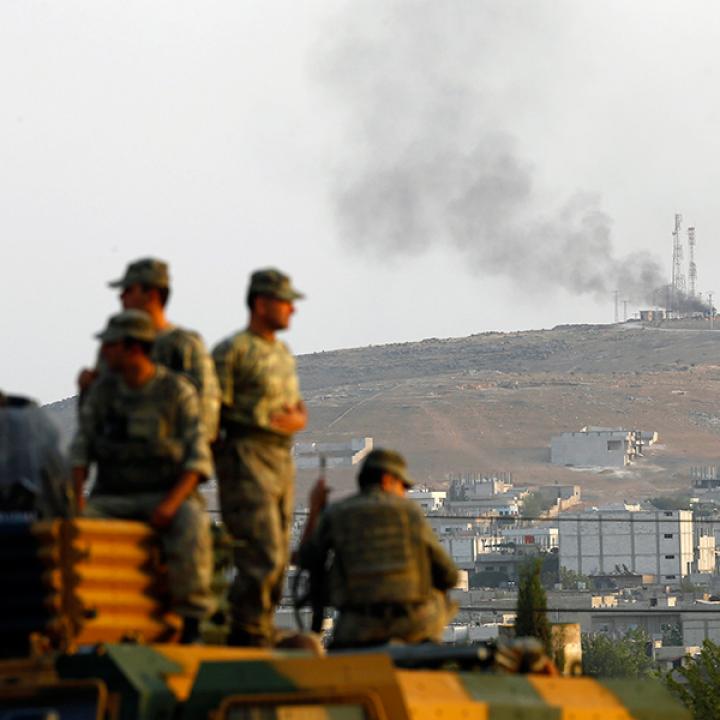

The attack on Kobane, pitting ISIS against Kurdish forces, is a political as well as military battle given its presence on the border between Turkey and Syria.
By launching its assault on the Kurdish city of Kobane in northern Syria, the Islamic State of Iraq and al-Sham (ISIS) has inadvertently walked into a trap that has made it easier for the international coalition to strike the group. ISIS's determination to seize control of Kobane, which lies on the Turkish border, is foolish: now that the Kurds seem embroiled in an existential fight against the jihadist group, there is greater regional and international support for Kurdish self-determination. So the battle for Kobane is not just military, but political, too. It is part of a cold war between Turkey, the Kurds, and the United States.
Turkish president Recep Tayyip Erdogan has been trying to influence events in Syria, both to avoid being cast aside by a rapprochement between Iran and the United States and due to worries that Washington will embrace the Kurds as allies. However, the real controversy is that Washington has given the Kurdistan Workers Party (PKK) and its Syrian affiliate, the Democratic Union Party (PYD), a role in the battles of Kobane and Sinjar. Moreover, there has been cooperation between the PKK and the Kurdistan Regional Government (KRG) in the fight against ISIS, even though Erbil is allied with Ankara.
Turkish support for some Islamists in Syria is a way for Ankara to express its anger at being sidelined in discussions between Washington, Riyadh, and Tehran regarding Syria and Iraq. When ISIS attacked Iraqi Kurdistan, Turkey left KRG president Masoud Barzani in the lurch by failing to provide any military support and refusing to fight against ISIS. In doing so, Turkey was effectively undermining American interests in the region, which prompted the Obama administration to take a decisive stance by backing the peshmerga and other Kurdish fighters in Kobane.
In reality, Turkey does not want the Syrian Kurds to fall into the PKK's camp; it prefers that the KRG, which is sponsoring the peace process between the Kurds and Ankara, represent Kurdish interests. On the other hand, Erdogan's campaign against the United States reflects Turkey's outrage that the United States has made contact with the PKK's affiliate in Syria and provided them with assistance in Kobane. Voices in Washington are even calling for the PKK to be removed from the Foreign Terrorist Organizations list for two reasons: first, because the PKK, its affiliates, and the peshmerga are fighting ISIS, and second, because they think that Ankara could be pressured by exploiting Turkish-Kurdish tension. Such a move could have negative implications for the future of Erdogan and his Justice and Development Party -- including losing some of the power they gained thanks to Kurdish votes. However, it is not easy for the United States to abandon Turkey and the KRG for the PKK, especially since the PKK is still considered a terrorist group and has ties to both Damascus and Moscow.
Washington realizes that bringing together the PKK, the KRG, and Turkey will be very tricky. Thus we see that the PKK offered Turkey major concessions and even sought Turkey's aid during the battle for Kobane. It has also offered concessions to Washington in order to secure its future position in Syria. Turkey has likewise mitigated its rhetoric and shown flexibility in keeping Erbil as its political point of reference for the Kurdish issue in Syria, which dovetails with U.S. policy. For this reason, the battle for Kobane will continue until the United States manages to broker political agreements between these parties. Only Washington holds the key to such a solution.
Fikra Forum


